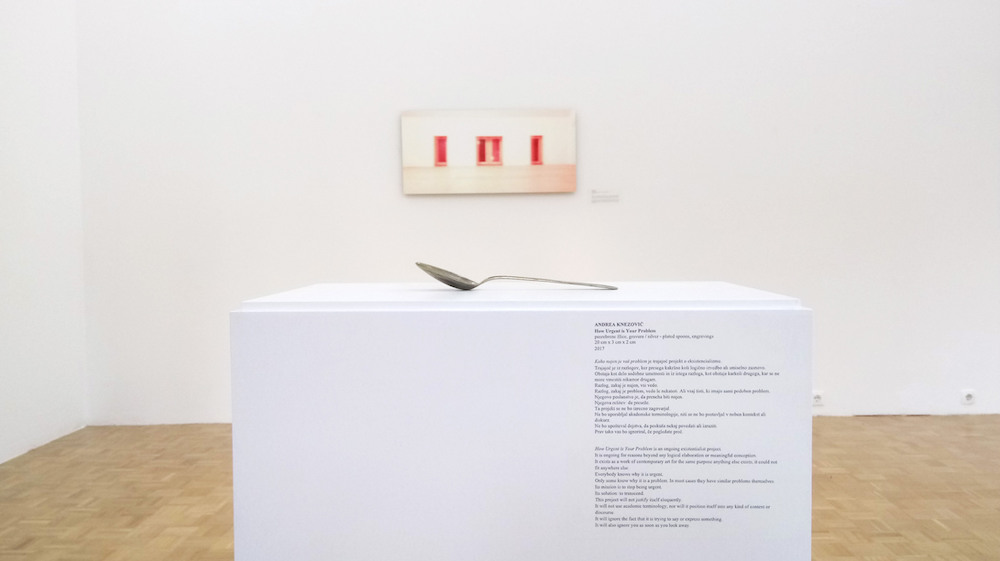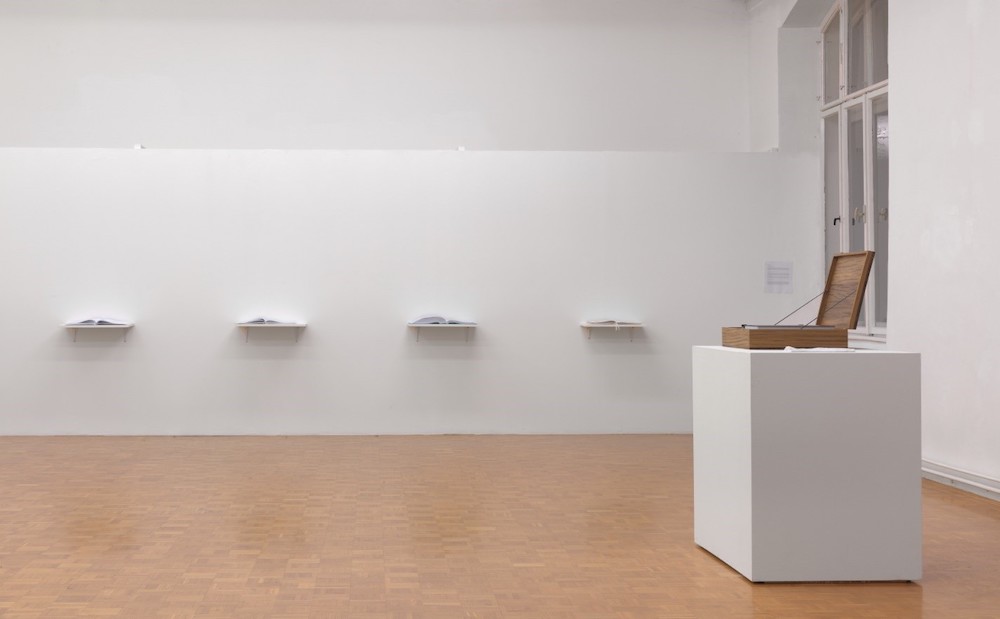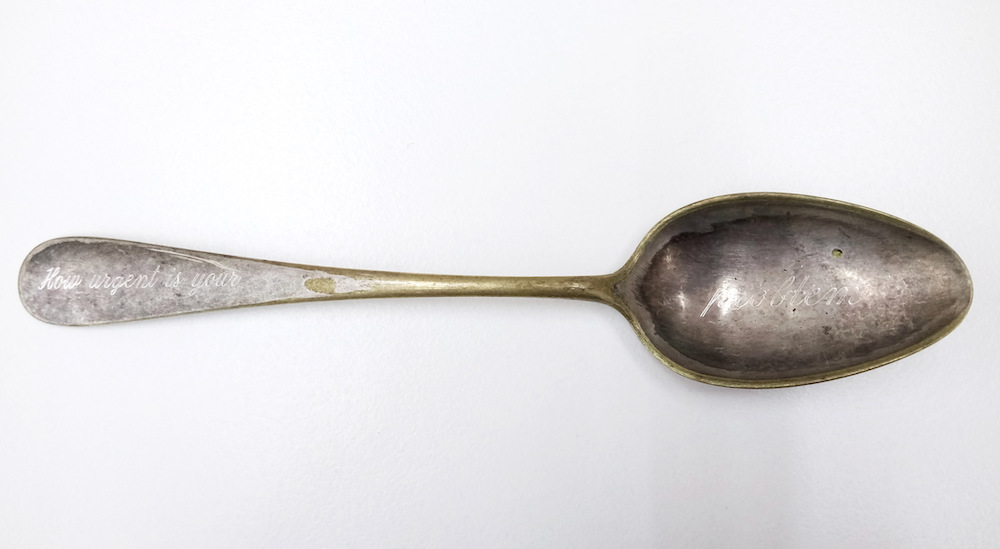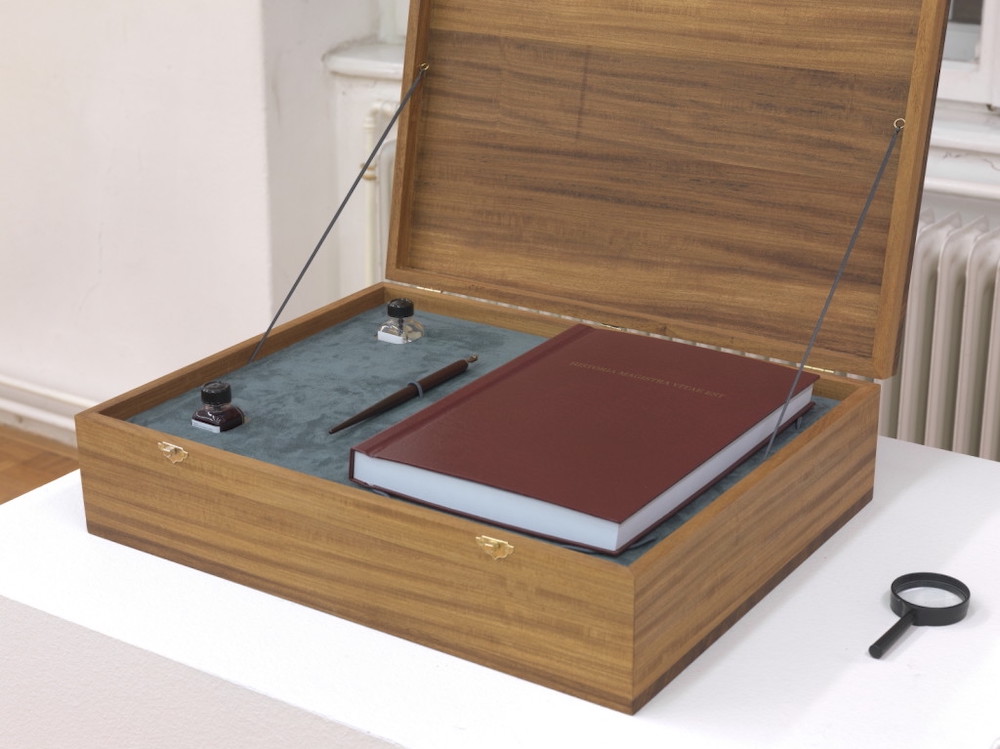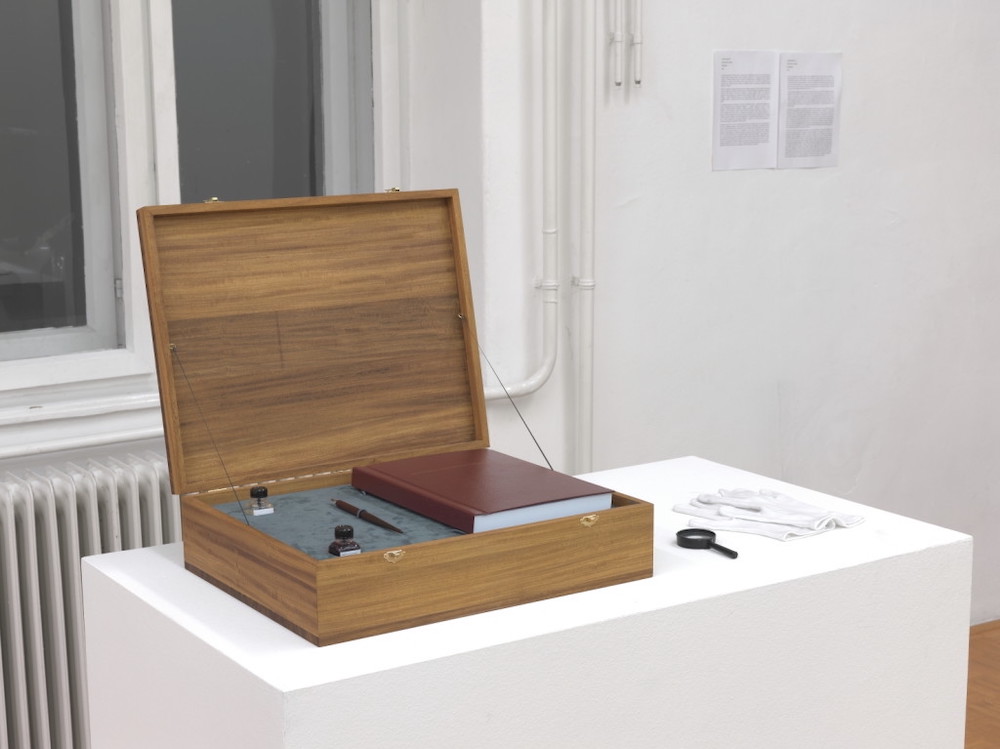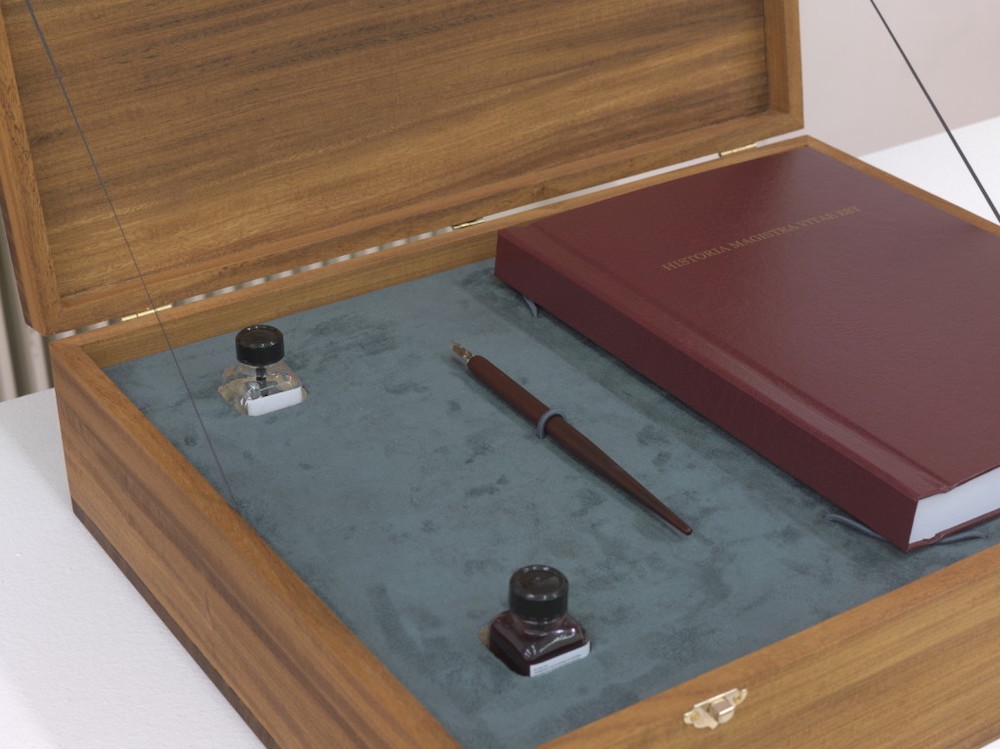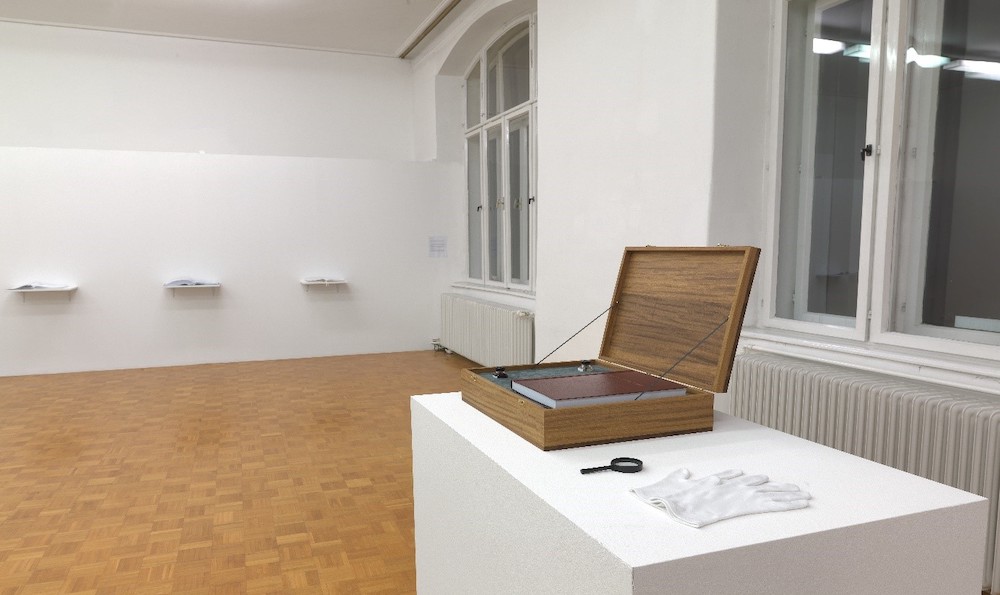The exhibition Dialectics of Value examines the complex interplay between the production of value, systems of measurement, and the pervasive emotional charge of shame in shaping social and cognitive behaviour. Set within the temporal and ideological landscape of late capitalism’s 24/7 demand cycle, Andrea Knezović’s works unfold as poetic investigations of how value is constructed, mediated, and internalised. Through strategies of gameplay, symbolic ritual, and archival construction, the exhibition traverses the affective geologies of power, identity, and collective conditioning.
In this conceptual terrain, Only Victor’s Justice (2015) operates as a sculptural allegory of historic authorship and the moral dissonance inherent in the construction of dominant narratives. Crafted from afromosia wood, mahogany, leather, and human blood, the work draws on philosophical frameworks by Schopenhauer and Nietzsche to explore the will to live and the will to power — primal forces that structure historical continuity and rupture alike. Knezović confronts the recurring motif of power as both a survival mechanism and a form of inherited domination. The installation implicates the viewer in the cycle of justice written by victors, questioning whose values are memorialised and whose suffering is collateral. Here, shame is not only a byproduct of historical exclusion but also a force mobilised to justify systemic power through silence, complicity, and institutional amnesia.
This dialectic continues in How Urgent Is Your Problem? (2017), a minimal yet loaded object work consisting of engraved, silver-plated spoons inscribed with the titular question. At once intimate and absurd, the piece captures the quiet violence of rhetorical mechanisms that trivialise suffering by packaging it into bureaucratic or therapeutic language. The spoon, a symbol of nourishment and care, is repurposed as a clinical interface — echoing the paradoxes of contemporary care economies where empathy is instrumentalised and pain is processed through administrative channels. “Look how far we have arrived, without any clue where we were going,” the accompanying text states, amplifying the existential confusion underpinning the value structures we inhabit. In this sense, the work embodies a micro-gesture of protest against systems that quantify distress while ignoring its structural origins.
Together, these works expand the curatorial thesis of Dialectics of Value, tracing how shame and value converge not only in grand geopolitical systems but also in the subtle, quotidian rituals of measurement and identity formation. Knezović proposes that shame, often seen as a suppressive emotional force, might also be understood as a liminal tool — a mediator of social positioning, a residue of internalised governance, and a potential site for resistance and recalibration. By connecting historical power dynamics with contemporary cognitive capitalism, the exhibition reveals a circular economy of value where the emotional, the political, and the symbolic collide.
